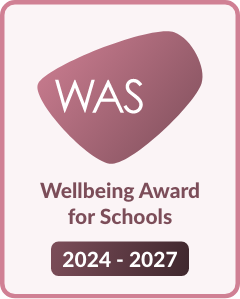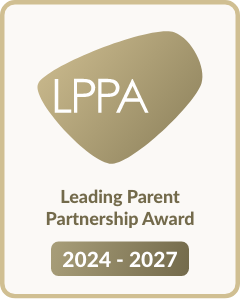PSHE
What is PSHE and why it matters?
PSHE refers to the Personal, Social, Health and Economic education. PSHE is about the Child, the development of their values, knowledge, skills and attributes that will need to support them now and in their future. These skills and attributes help pupils to stay healthy and safe and prepare them for life and work in modern Britain. When taught well, PSHE education helps pupils to achieve their academic potential, and leave school equipped with the skills they will need throughout later life. The curriculum is student centric and strives to support all students in making personal progress. Students will have some existing knowledge, skills, understanding and beliefs relating to many PSHE issues. They will have been exposed to parental, family, peer, school, community and media views on different issues and will be aware of a range of related attitudes and values. They will be developing – or have developed their own ideas and responses and teachers need to be aware of this. Students’ existing knowledge, skills, understanding and beliefs can be used as a starting point for discussion and help ensure learning is relevant.
Philosophical influences on the curriculum design
Philosophical influences that are shown below have contributed to the design, development and delivery of PSHE across the key stages.

The subject for primary is organised into broadly 6 categories:
- Self-awareness (Me, who I am, my likes, dislikes, talents and interests)
- Self-care, support and safety (Looking after myself and keeping safe) includes aspects of Relationships and sex education
- Relationships: Managing Feelings (Understanding feelings and that how I feel and how others feel affects choices and behaviour) includes aspects of Relationships and sex education
- Relationships: Changing and Growing (How I and others are changing; new opportunities and responsibilities) includes aspects of Relationships and sex education
- Healthy lifestyles (Being and keeping healthy on the ‘outside’ and on the ‘inside’)
- The world I live in (Living confidently in the wider world)
The subject for secondary is organised into 3 core themes:
- Health and wellbeing:
- What is meant by a healthy lifestyle?
- How to maintain physical, mental and emotional health and wellbeing
- How to manage risks to physical and emotional health and wellbeing
- Ways of keeping physically and emotionally safe
- About managing change, including puberty, transition and loss
- How to make informed choices about health and wellbeing and to identify and access help and support with this
- How to respond in an emergency
- To identify different influences on health and wellbeing
- The role and influence of the media on lifestyle and identity
- Relationships
- How to develop and maintain a variety of healthy relationships, within a range of social/cultural contexts
- How to identify and manage emotions within a range of relationships
- How to recognise risky or negative relationships including all forms of bullying and abuse
- How to respond to risky or negative relationships and ask for help
- How to respect equality and diversity in relationships
- Consent in all forms including in sexual relationships
- To know and to be able to access help, advice and support
- Living in the wider the world
- About respect for self and others and the importance of responsible behaviours and actions
- About rights and responsibilities as members of families, other groups and ultimately as citizens
- About different groups and communities
- To respect diversity and equality and how to be a productive member of a diverse community including developing employability, team working skills and to develop flexibility and resilience
- About the importance of respecting and protecting the environment
- How personal financial choices can affect oneself and others and about rights and responsibilities as consumers
PSHE Association SEN framework for PSHE and Programme of study for Key stages 1-5.
Opportunities are presented (where possible /appropriate) for students to:
- Experience taking and sharing responsibility
- Feel positive about themselves and others
- Reflect on their perceptions and experiences
- Develop the understanding, language, communication skills and strategies required to exercise personal autonomy wherever possible
- Carry out or take part in daily personal living routines
- Make real choices (with support where necessary so that they can act upon them)
- Take part in group activities and make contributions
- Develop and maintain positive relationships and interactions with others
- Recognise and celebrate their achievements and successes
Overarching concepts consolidated across programme of study
-
Identity (recognising their personal qualities, attitudes, skills, attributes and achievements and how these make them who they are; understanding and maintaining boundaries around their personal privacy —including online)
-
Relationships (different types and in different settings, including online and intimate relationships)
-
A healthy (physically, emotionally and socially) balanced lifestyle, (including within relationships, work- home-life, food, exercise and rest, spending and saving and lifestyle choices)
- Risk (identification, assessment and how to manage risk, rather than simply the avoidance of risk, or trusting that others will take responsibility for managing risk) and safety (including behaviour strategies and communication skills to employ in different settings, including online)
-
Diversity and equality (in all its forms, with due regard to the protected characteristics set out in the Equality Act 2010)
-
Rights (including the notion of universal human rights; recognition and understanding of their rights), responsibilities (including fairness and justice) and consent (in a variety of contexts)
-
Change (as something which is experienced and can be managed) and resilience (the skills, strategies and ‘inner resources’ to draw on when faced with challenging changes or circumstances)
-
Power (how it is used and encountered in a variety of contexts, including online; how it manifests through behaviours including bullying, hurtful behaviour, persuasion, coercion and how it can be challenged or managed, including how and where to access support and help; that misuse of power is never their fault)
-
Economic wellbeing (including careers education, enterprise, employability and economic awareness), identifying future aspirations and understanding the purpose of goal setting (PSHE association 2019)
Safeguarding and the curriculum
Safeguarding in schools is more than simply keeping pupils safe in school. We leave them vulnerable if we do not do everything we can to equip them to keep themselves safe in school, outside school and in the future. PSHE education lessons provide the best context for this learning, as part of a whole school approach and can contribute to safeguarding by:
- Teaching pupils about healthy relationships and helping them recognise unhealthy relationships
- Helping pupils recognise inappropriate behaviour towards them or others and to access help
- Raising pupils’ awareness of abuse, gender-related and gang violence
- Addressing gender stereotypes and challenging the negative attitudes which lead to violence and abuse
- Teaching the language, skills and strategies that enable pupils to tackle and mitigate risks to their (or others’) physical or emotional safety, including bullying, unhealthy relationships, sexual exploitation, gangs, radicalisation, drug and alcohol use and other risky behaviours
- Teaching the knowledge, understanding and skills pupils need to keep safe online
- Broadening pupils’ understanding of concepts such as consent, equality, discrimination, power and exploitation as part of a broader curriculum
- Helping pupils to support and seek help for friends who are in unsafe situations
- Helping pupils to see how their own behaviour can at times put others at risk.
- Supporting the development of personal attributes such as self-esteem, resilience and self-confidence and skills such as managing risk, decision making, emergency aid
Wellbeing & their outcomes (Related to SMSC*)
PSHE supports the development of whole child wellbeing and developing their skills in recognising and responding to their wellbeing needs. Within PSHE, students will learn about their own wellbeing and develop skills to support positive wellbeing as well as skills and knowledge on how to improve it. Each topic is mapped out against each section highlighting how each topic addresses students’ wellbeing needs. This can be found in the programme of study.
- Physical
- Social
- Purpose
- Emotional
- Environmental
- Financial
- Intellectual
- Career
Character outcomes (Related to SMSC*)
As part of our PSHE philosophy, students will have the opportunity to explore their own character and be given the opportunity to identify and develop their key strengths as well as develop areas they identify as wanting to develop. Students will explore how our character can affect our thoughts, decisions and actions.
The key areas of character are:
- Independence
- Resilience
- Respectful
- Responsible
- Courage
* Spiritual, Moral, Social and Cultural development







